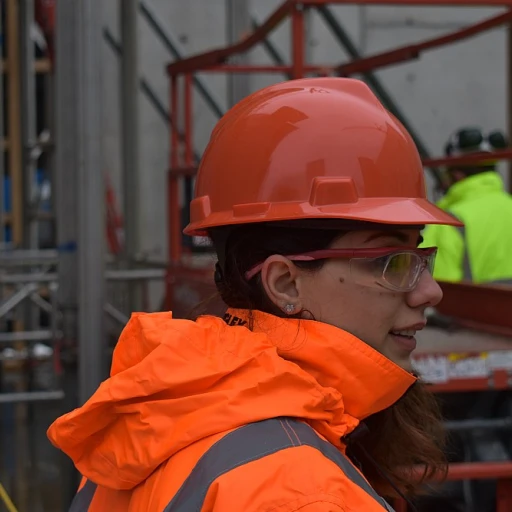
What a PA criminal background check includes
What Information Is Included in a Pennsylvania Criminal Background Check?
A Pennsylvania criminal background check is a detailed review of an individual's criminal history records within the state. Employers, landlords, and organizations often use these checks to assess candidates for employment, housing, or volunteer positions, especially in sensitive sectors like child care or elder care. A typical check in Pennsylvania may include:- Criminal convictions from state and county courts, including felonies and misdemeanors
- Pending charges and arrests, depending on the type of check and the reporting agency (do pending charges appear on background checks?)
- Sex offender registry status
- History of incarceration in state correctional facilities
- Public records related to criminal activity, such as warrants or probation status
Why background checks are increasingly important
Why Employers and Organizations Rely More on Criminal Background Checks
In Pennsylvania, the demand for criminal background checks has grown steadily. This is not just a trend among large corporations—small businesses, schools, healthcare providers, and even volunteer organizations are increasingly using these checks to make informed decisions. The reasons are varied, but the core motivation is risk management and compliance with state and federal laws.
- Workplace Safety: Employers want to ensure a safe environment for staff, clients, and the public. Reviewing a candidate's criminal history record helps identify potential risks, especially in roles involving vulnerable populations, such as child care or elder care.
- Legal Compliance: Pennsylvania law requires certain sectors, like education and healthcare, to conduct background checks on employees. This includes checks for criminal records, child abuse history, and sometimes even credit reporting, depending on the position.
- Reputation Management: Organizations are aware that hiring someone with a serious criminal record could impact their reputation and lead to liability issues. Conducting thorough checks helps protect their brand and trust with the public.
- Fair Hiring Practices: With the rise of ban the box laws and the Clean Slate initiative, employers are also learning to balance fair treatment of candidates with the need for due diligence. These laws guide how and when an employer can ask about criminal history, aiming to reduce discrimination against people with past convictions.
Changing Attitudes and New Challenges
Public awareness about the importance of background checks has also increased. Many job seekers in Pennsylvania now expect employers to review their criminal history records as part of the hiring process. At the same time, there is a growing conversation about what information should be considered relevant and how long past convictions should affect employment opportunities.
Employers must navigate a complex landscape of state and county regulations, especially in places like Allegheny County, where local rules may differ. They also face challenges in interpreting records accurately and ensuring that reports are up to date and fair. Misunderstandings about what a background check can reveal—such as the difference between arrests and convictions—are common, and can lead to mistakes in hiring decisions.
For those concerned about how a criminal record might impact job prospects, understanding your rights and the laws in Pennsylvania is crucial. For more on how specific offenses, like a misdemeanor DUI, can affect employment, see this resource on how a misdemeanor DUI can impact your job prospects.
Recent trends in PA criminal background checks
Shifting Employer Expectations and Legal Updates
In Pennsylvania, the landscape of criminal background checks is evolving rapidly. Employers are more frequently using these checks to screen candidates, especially in sensitive sectors like healthcare, education, and child care. This increased scrutiny is partly driven by state laws and public safety concerns. At the same time, recent updates to Pennsylvania law, such as the expansion of "ban the box" laws and the Clean Slate Act, are changing how criminal history records are accessed and used in hiring decisions.
Key Trends in Pennsylvania Background Checks
- Ban the Box Expansion: More employers in Pennsylvania are removing questions about criminal history from initial job applications. This shift aims to ensure fair consideration for all candidates, regardless of past convictions.
- Clean Slate Law: Pennsylvania’s Clean Slate law allows for the automatic sealing of certain criminal records, including some misdemeanors and summary offenses, after a period of good behavior. This means some history records may not appear on a standard background check, giving individuals a second chance at employment.
- County-Level Differences: There are notable differences in how counties like Allegheny County process and report criminal records. Some counties are faster or more thorough in updating public records, which can affect the accuracy and completeness of a background check.
- Increased Use of State Police and Online Databases: Employers and individuals are relying more on the Pennsylvania State Police and online public records databases to obtain official criminal history record information. This trend is making checks more accessible but also raises questions about data accuracy and privacy.
- Focus on Sensitive Positions: Jobs involving children, the elderly, or vulnerable populations now almost always require comprehensive checks, including child abuse history and state police reports.
Impact on Candidates and Employers
These trends mean that both candidates and employers need to stay informed about changes in state law and best practices for background checks. For candidates, understanding which records may be sealed or expunged is crucial. For employers, compliance with fair credit reporting laws and ban the box regulations is essential to avoid legal pitfalls and ensure a fair hiring process.
With the growing importance of background checks, it’s also wise to consider how other factors, like credit history, can impact opportunities. For more insights, check out this comprehensive guide to car leasing with poor credit, which explores how background and credit checks intersect in real-life decisions.
Common challenges and misconceptions
Misunderstandings About What Shows Up
Many people in Pennsylvania are unsure about what a criminal background check actually reveals. Some believe that only convictions appear, but in reality, background checks can show arrests, pending charges, and even dismissed cases, depending on the type of check and the source. Employers may access different levels of detail based on whether they use state police records, county court records, or third-party credit reporting agencies. This can lead to confusion for candidates and employers alike.
Challenges with Record Accuracy and Updates
Another common issue is outdated or incorrect information in criminal history records. Pennsylvania’s Clean Slate law helps seal certain low-level offenses after a period of time, but not all databases update promptly. This means a background check might still show records that should be sealed or expunged. Candidates are often surprised to find old or resolved issues still appearing on their report, which can impact employment or housing opportunities.
Complexities of State and County Laws
Pennsylvania has unique laws, like "ban the box" regulations and specific rules for child abuse clearances in care-related jobs. However, not all employers or candidates are fully aware of these requirements. For example, Allegheny County may have slightly different practices compared to other counties. This patchwork of laws can make it difficult for both employers and candidates to know what is required and what is allowed in a background check process.
Fair Credit and Reporting Misconceptions
Some believe that all background checks are the same, but there are differences between criminal background checks and those conducted for credit reporting. The Fair Credit Reporting Act (FCRA) sets guidelines for how background check information is used, especially in employment. Employers must get written consent and provide a copy of the report if they take adverse action. Not understanding these protections can lead to unfair treatment of candidates or legal issues for employers.
- Not all criminal records are public; some are sealed or expunged.
- Employers must follow state and federal laws when using background checks for employment decisions.
- Background checks may include more than just criminal convictions, such as pending charges or non-criminal public records.
How to request and interpret your own background check
Steps to Access Your Pennsylvania Criminal History Record
Requesting your own criminal background check in Pennsylvania is a straightforward process, but it’s important to follow the right steps to ensure accuracy and privacy. The Pennsylvania State Police (PSP) manages the official criminal history record system, known as PATCH (Pennsylvania Access To Criminal History). Here’s how you can obtain your records:
- Visit the official PATCH website or request a background check by mail through the Pennsylvania State Police.
- Provide your full legal name, date of birth, and any other required identification details.
- Pay the applicable fee, which varies depending on the type of check (standard criminal history, child abuse clearance, etc.).
- For employment or volunteer positions involving children or care, you may also need a Child Abuse History Clearance from the Department of Human Services.
- Some counties, like Allegheny County, may have additional local requirements or offer in-person services for public records access.
Understanding Your Background Check Report
Once you receive your criminal background check report, review it carefully. The report will list any criminal records, convictions, or pending charges found in state or county databases. Here’s what to look for:
- Personal Information: Ensure your name, date of birth, and other identifiers are correct.
- Criminal History: Check for any listed convictions, arrests, or charges. Pennsylvania’s Clean Slate law may automatically seal certain nonviolent misdemeanor records, so not all past offenses may appear.
- Discrepancies: If you find errors or outdated information, you have the right to dispute them with the reporting agency or the Pennsylvania State Police. This is crucial for fair employment opportunities, especially with ban the box laws in place.
- Scope: Remember, most standard checks only include Pennsylvania state records. Employers or credit reporting agencies may request broader searches, including federal or multi-state databases.
Tips for Candidates and Employers
- Employers must follow state and federal fair credit reporting laws when using background checks for employment decisions. Candidates should be informed if a background check will be used in the hiring process.
- For candidates, proactively obtaining and reviewing your own criminal history record can help you address any issues before applying for jobs or care positions.
- Keep copies of your background check and any correspondence regarding corrections for your records.
Understanding your Pennsylvania criminal background check is key to protecting your rights and ensuring fair consideration in employment and other opportunities. Always use official state resources and be aware of your rights under state law.
Protecting privacy and ensuring accuracy
Steps to Safeguard Your Personal Information
When requesting a Pennsylvania criminal background check, protecting your privacy is crucial. The process often involves sharing sensitive details, such as your Social Security number and address. To reduce risks:
- Use only official channels, like the Pennsylvania State Police or authorized third-party providers, to request your criminal history record.
- Be cautious about sharing your information with unfamiliar websites or individuals.
- Keep copies of all documents and correspondence related to your background check.
Ensuring the Accuracy of Your Records
Errors in criminal records or background check reports can impact employment, housing, and other opportunities. After receiving your report, review it carefully for mistakes, such as outdated convictions, incorrect personal details, or records that should be sealed under Pennsylvania's Clean Slate law. If you spot errors:
- Contact the reporting agency or the Pennsylvania State Police to dispute inaccuracies.
- Gather supporting documents, like court records or expungement orders, to help correct your history record.
- Follow up regularly until the issue is resolved.
Understanding Your Rights Under State and Federal Law
Pennsylvania law, along with federal regulations like the Fair Credit Reporting Act, gives you the right to access your own criminal background check and dispute errors. Employers must also follow "ban the box" laws, which restrict when they can ask about a candidate's criminal history during the hiring process. If you believe your rights have been violated, you can file a complaint with the appropriate state or federal agency.
Special Considerations for Sensitive Roles
Some positions, especially those involving child care or work in Allegheny County, require additional checks, such as child abuse history records. These checks are subject to strict privacy protections, and only authorized employers can access them. Always verify which records are required for your role and how your information will be used.













